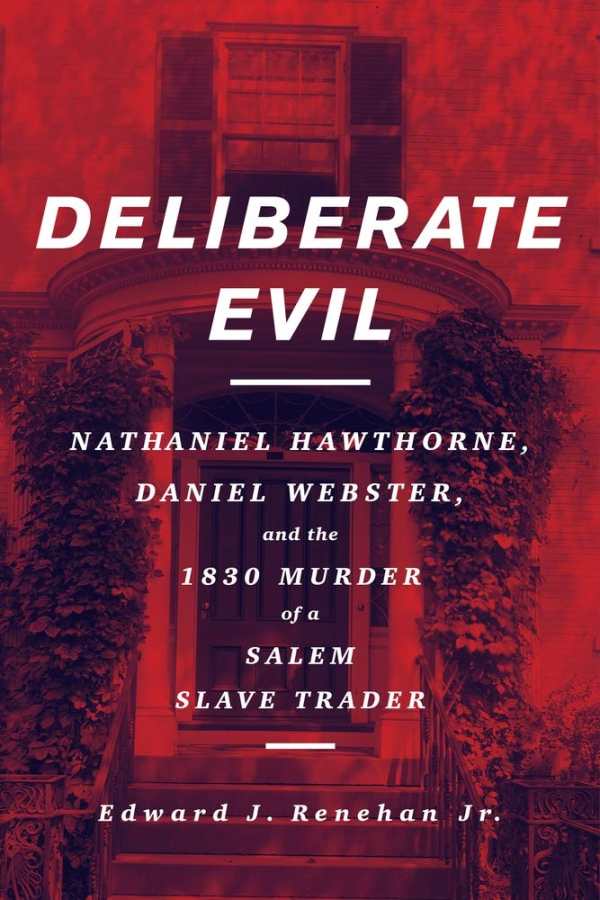
Deliberate Evil
Nathaniel Hawthorne, Daniel Webster, and the 1830 Murder of a Salem Slave Trader
Edward J. Renehan Jr.’s Deliberate Evil is about a true crime from long ago: the upper-class murder that shook Salem, Massachusetts in the 1830s. That spooky setting is fleshed out with lots of literary references, enriching the book.
The book begins with the murder of a wealthy, elderly townsman, covering the public’s fascination with the crime. The victim, Captain Joseph White, doesn’t garner much empathy, having made his fortune as a slave trader. The book’s first half introduces the murdered man’s milieu—the powerful families of the fading port town—as well as their proclivities. A rich sense of place is established, going back to the 1690s witch trials and drawing fascinating similarities between the dramatic investigations and accusations of each subsequent era in Salem.
Great attention is given to describing Salem’s buildings—some still present; others long gone; all of them contributing to the area’s long and changing history. The site of a key witch trial event is revealed to be in a surprising location today. And in imagining what an imprisoned suspect of White’s killing may have felt while sitting in a jail cell with a window view of the gallows, Renehan brings immediacy and emotion to the older tale.
The courtroom speech given by famed attorney Daniel Webster is used to flesh the story out, while a continuing discussion of the murder trials’ influence on Nathaniel Hawthorne is a great addition. Renehan shows that other authors were influenced by it, too, including Edgar Allan Poe.
A passionate introduction to early Salem and the high-profile crimes that took place there, Deliberate Evil is a true crime text that takes a close look at power and class struggles. It’s told with real relish for the location and the stories of those who conspired to benefit from a murder.
Reviewed by
Meredith Grahl Counts
Disclosure: This article is not an endorsement, but a review. The publisher of this book provided free copies of the book to have their book reviewed by a professional reviewer. No fee was paid by the publisher for this review. Foreword Reviews only recommends books that we love. Foreword Magazine, Inc. is disclosing this in accordance with the Federal Trade Commission’s 16 CFR, Part 255.
